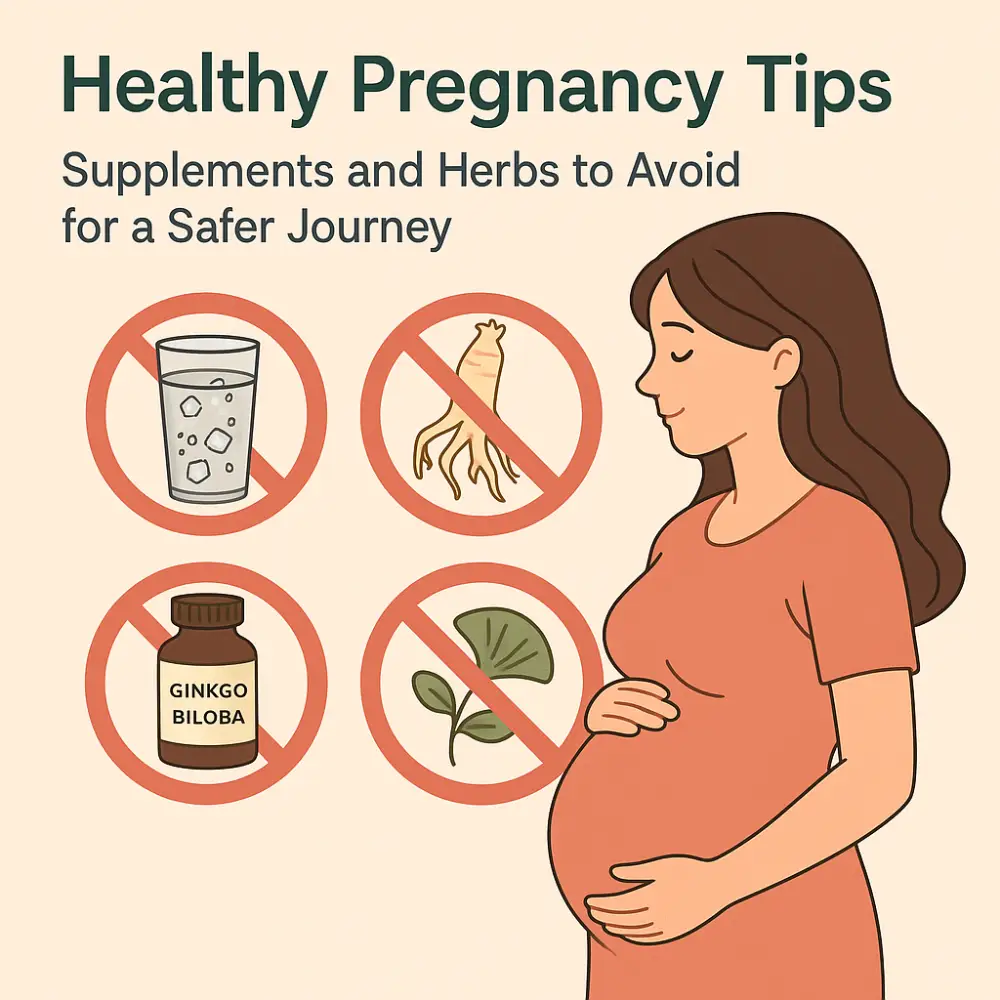Maintaining a healthy pregnancy requires paying close attention to the supplements, herbs, and remedies you consume. While prenatal vitamins provide essential nutrients such as folic acid, some women may be tempted to try additional supplements or herbal remedies. However, not all supplements are safe during pregnancy. This guide offers important healthy pregnancy tips by highlighting the supplements and herbs to avoid in order to protect both mother and baby.
Supplements and Herbs to Avoid During Pregnancy
1. Quinine: Avoid Tonic Water During Pregnancy
Quinine, often found in tonic water, may have adverse effects during pregnancy. Though tonic water is enjoyed for its bitter flavor, research shows that excessive consumption can be harmful. In one case, a woman who consumed more than a liter of tonic water daily gave birth to a baby who experienced withdrawal symptoms and nervous tremors for two months. The German Federal Institute for Risk Assessment (BfR) advises pregnant women to treat quinine-containing drinks as medicinal products and avoid them. A key healthy pregnancy tip is to skip quinine beverages to safeguard your baby’s health.
2. Ginseng: A Herb to Be Cautious With
Ginseng is a popular herbal remedy, but it is best avoided during pregnancy. A study from the Chinese University of Hong Kong showed that high doses of ginseng in rats led to developmental abnormalities. Although results were based on animal studies and focused on one component of ginseng, the findings suggest caution—especially during the first trimester. Since the effects of ginseng in human pregnancy are not fully studied, one of the smartest pregnancy health tips is to avoid ginseng unless your doctor recommends it.
3. Ginkgo Biloba: Potential Risks to Fetal Development
Ginkgo biloba, another common supplement, also carries risks. Research from Wayne State University in Detroit discovered traces of colchicine—a toxic substance—in the placentas of women who had taken ginkgo biloba. Colchicine is dangerous in high doses and may affect fetal development. While no direct link between ginkgo and pregnancy complications was confirmed, it is recommended to avoid ginkgo as a precaution. Following healthy pregnancy tips like this can help reduce unnecessary risks.
4. Always Consult Your Healthcare Provider
Although research highlights potential risks with quinine, ginseng, and ginkgo biloba, these studies are not conclusive. Human health is complex, and every pregnancy is unique. Always consult your healthcare provider before adding supplements or herbs to your diet. A professional can offer personalized advice, ensuring your pregnancy remains safe and healthy.
Conclusion: Safeguard Your Pregnancy with Smart Choices
When it comes to healthy pregnancy tips, one of the most important is to be mindful of what you consume. Stick to prenatal vitamins and a balanced diet while avoiding herbal remedies such as quinine, ginseng, and ginkgo biloba. Consulting your healthcare provider ensures that you make safe, informed choices. Protecting your well-being supports your baby’s healthy growth and development, giving you peace of mind throughout your pregnancy journey.
Supplements and Herbs to Avoid: Quick Reference Table
| Supplement/Herb | Why Avoid During Pregnancy? | Healthy Pregnancy Tips |
|---|---|---|
| Quinine (Tonic Water) | Excessive intake linked to withdrawal symptoms in newborns (nervous tremors, irritability). | Avoid tonic water or quinine-based drinks. Choose water, fresh juices, or safe herbal teas instead. |
| Ginseng | Animal studies suggest high doses may cause developmental abnormalities. | Skip ginseng during pregnancy, especially in the first trimester. Always consult your doctor before use. |
| Ginkgo Biloba | Traces of colchicine (toxic) found in placentas of women taking ginkgo supplements. | Best to avoid ginkgo during pregnancy. Focus on a balanced diet and prenatal vitamins recommended by your doctor. |

